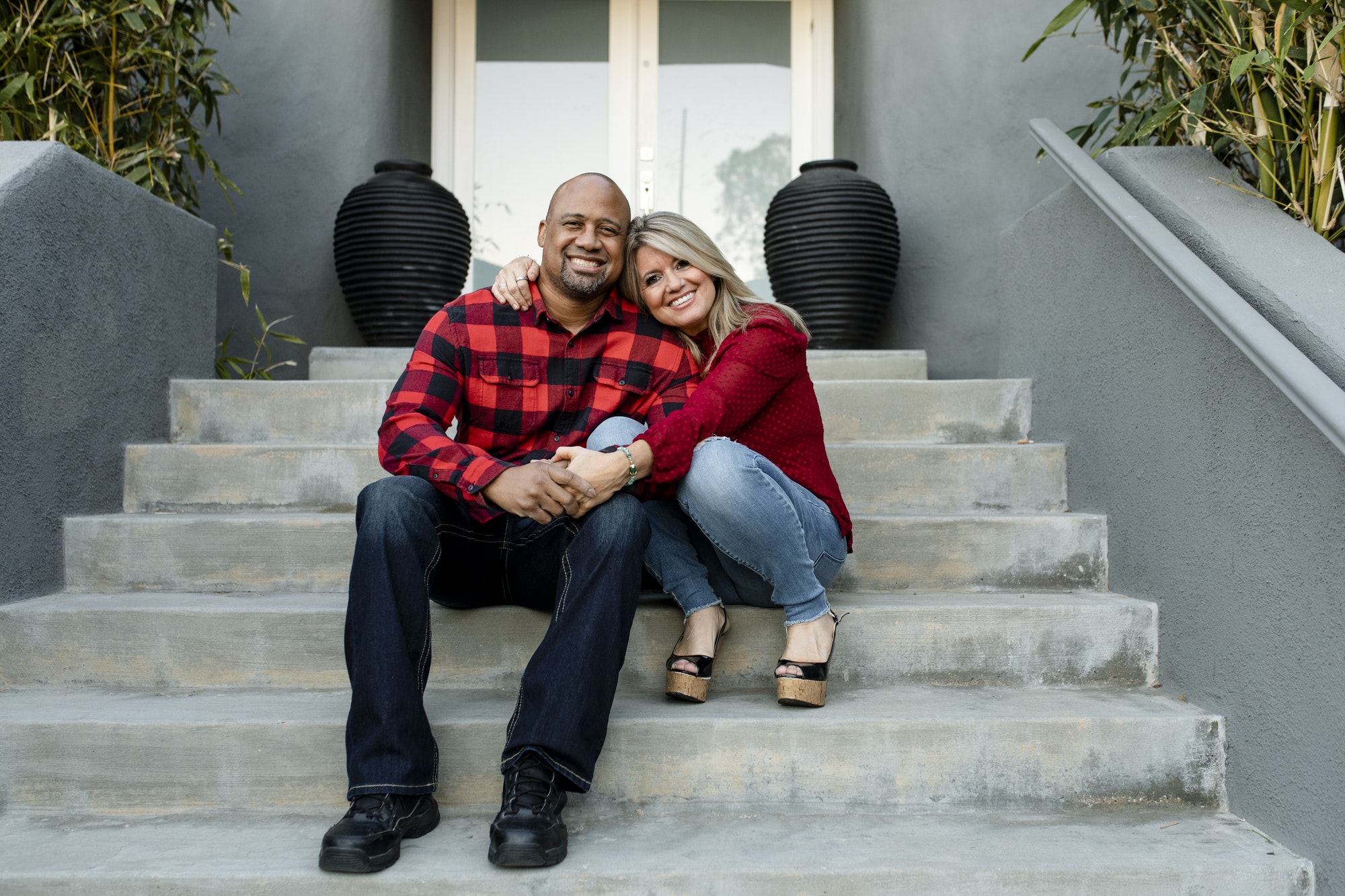

If you’ve ever been cheated on, you know the feeling: it’s like your whole world is falling apart. An affair, or even a single stupid mistake by your partner, can do immense damage to your relationship, your sense of self-worth, and even your identity itself. Even if you’ve tried to put it behind you, you’ve probably felt that familiar pang of all the pain returning again and again as time goes on. Given all of this, can a relationship even be salvaged after such a massive betrayal?
Before we go any further, I want you to know that I feel for you. Working with clients who have been cheated on is always gut-wrenching, because I how much pain they’re in, and how there seems to be so little in the way of immediate relief. I’m sorry you’re in this situation, and I know you’re probably thinking that your relationship has irreversibly changed for the worse. It’s normal to think that cheating is the end-all in relationships, and that once it occurs, things are already over between you and your partner. Unfortunately, that is true for a lot of people, but it’s not guaranteed. With enough work and patience, this ugly episode doesn’t have to be the end of your relationship. There is a way forward for you two.
You may be surprised to hear it, but not only can relationships be salvaged after infidelity, the process of rebuilding can actually lead to a stronger relationship overall. The work that goes into undoing the damage can often become the foundation upon which a stronger, healthier, and happier relationship is built. The first step is for you and your partner to accept that you want to try to fix this. But then what? Well, if you’re wondering how to get over infidelity and stay together, you’re in the right place.
In this article, I want to lay out the tools you need to rebuild your relationship after infidelity. I know it’s not easy, but if you and your partner are motivated to put a lot of work in, you can turn this difficult period around and make your relationship stronger and healthier than ever.
A strong sense of trust between you and your partner is one of the key foundational elements any relationship needs to thrive. That’s why cheating is such a deal-breaker: it’s the ultimate betrayal of trust. When someone cheats, they make a selfish decision with absolutely no regard for the feelings of their partner. Being on the receiving end of this is incredibly painful, and what makes it so much worse is that the source of the pain is the last place you’d expect: the person closest to you. You trusted them, and they hurt you. This is a huge challenge to overcome if you want to stay together.
However, our first clue in how to start fixing this situation is right there in the problem: it’s rebuilding that trust. In this article, I want to get into some of the ways that can happen, but the most important thing to understand about this process is that it takes a lot of time. It’s natural to wish things could just get back to normal after infidelity, but unfortunately, it’s just not that easy. There’s an old Dutch saying: “trust arrives on foot, and leaves on horseback.” The reality is that trust is earned piece by piece, and can quickly crumble, so if you’re going to try rebuilding your relationship, you have to accept that you’re in it for the long haul.
It should go without saying that repairing the damage caused by infidelity is a process that’s going to have to involve both of you. However, in this article, I want to focus on your side of the equation, so that you know how to mentally prepare yourself for this process. Like I mentioned, accepting that it’s going to take a long time is the first step, but there are other things you should consider that can help you stay patient with yourself and your partner as you two navigate this difficult period.
If you’ve made up your mind that you want to move past cheating in your relationship, there are three core components that you should keep in mind. The first is healing yourself! This is because the damage caused to your relationship often masks the damage that’s done to you personally. Working on addressing that can give you the strength to face the second component of moving on: healing your trust in your partner. Forgiving infidelity is a tall order, but it can be done with the right attitude and considerations for each other. The third thing I want to talk about is an often-overlooked part of this process: knowing when to walk away. Just because you’ve accepted that you want to forgive someone for cheating, it doesn’t automatically mean that things are going to work out. The process of moving on takes a lot of work, and it’s worth keeping an eye out for some red flags along the way, just to make sure you’re not wasting all that time and effort.
So, let’s take a closer look at these three core components of how to move past cheating.

After you’ve been cheated on, it’s easy to get caught up on immediate practical fallout. What does this mean for your relationship? Your marriage? Your kids? It’s completely natural, but often it masks a really important element that needs to be addressed if we want our relationship to recover after infidelity: what does this mean for YOU?
Cheating is personally devastating, and it’s easy to lose sight of how deep the pain of infidelity cuts. If you want to move on, you need to have the strength to do so, which means healing your own wounds before you try healing the relationship. Make sure you take time to heal and address the damaged self-esteem that happens when someone cheats on you.
Many times, a person feels “unlovable” or even at fault when someone cheats on them. Of course this isn’t true, but that doesn’t make the feeling any less awful! It’s coming from a wounded sense of self-worth, and you’re going to have to do things that build that back up to escape from this feeling. Focus on activities that improve your quality of life and your self-confidence. There are two angles that you can work on this from: the first is physical, in that exercise can release a lot of the stress you’re going through and boost your endorphins. The other is mental: engaging with your friends and family, and working towards your personal goals. After all, self worth comes from a sense of accomplishment.

Rebuilding trust after infidelity takes a lot of time and a lot of work, and it happens so slowly it can be almost imperceptible. The first step in this process is managing your expectations: what would it take for your partner to make this right? Could you imagine trusting them again? Having these goals in mind is important as you go forward, but you have to accept that you’re not going to get there for a while.
Instead, while you’re slowly rebuilding the relationship, you can measure how things are going by communicating often and openly. The reason why this is so important is that it allows you to keep an eye out for the little things that restore trust in a relationship: respect, honesty, and consideration for each other’s feelings. Being clear with your partner about what you’re going through is vital, not just because it allows you to honestly express your feelings, but because it can reveal whether your partner respects you enough to listen and be receptive to what you’re saying. Having an ongoing process of communication reinforces this dynamic, and can foster trust as you both process the situation. It’s a slow road, but respectful and honest communication is the surest way to rebuild things between you two.
Of course, communication isn’t always easy after infidelity. Often, a breakdown in communication is what led to it in the first place. If you’re looking for help communicating with your partner, feel free to click here and check out our course in communication.
How long does a marriage last after infidelity: A coach’s honest answer
At this point, you may be thinking that this component doesn’t apply to you, since you and your partner have already made up your minds that you want to move past the cheating and reignite your relationship. However, there’s an interesting paradox here: being willing to walk away increases the likelihood that you’ll stay together! How is that possible?
Well, it boils down to you asserting your self-worth and your identity. This relationship shouldn’t define you, so if you want to keep it, you have to be sure that you’ll be fine without it. Being willing to walk away means that you’re being honest with yourself about the way you’re being treated. If you are unwilling to walk away, there’s very little accountability for the changes that need to happen in order for a relationship to bounce back after infidelity.
Now, that doesn’t mean your partner has to be on perpetual thin ice around you, or that you have to hold the threat of walking away over their head. This is something you need to carry deep inside of yourself, and be willing to use if need be. So when it is time to actually go through with it and stop trying to fix things?
The most obvious sign is if the cheating keeps happening. If you suspect that your partner is lying, that an affair isn’t actually over, or he or she makes more ‘stupid mistakes’, then you have to face the fact that this probably isn’t worth the effort. Your partner may plead with you once you find out, but repeated breaches of trust are about as sure of a sign as you can get that your feelings aren’t being taken into account, and probably never will be.
But what about more subtle signs that things aren’t worth salvaging? I’d recommend you keep an eye out for lack of remorse, pressure for you to move on sooner, frustration with your pain, and irritability at the mention of the affair. These are all manifestations of an attitude that puts your feelings second, which is unstable ground for a relationship to be built on.

To be completely honest with you, even if you do everything described above, and your relationship is showing signs of improvement, you may still feel lingering resentment and anger for a long time. A common refrain I hear with my clients is that they’ve rebuilt trust, their partner is showing sincere regret and genuine effort, yet they’re still not over the infidelity. You may even be angry with yourself, because you recognize that there’s nothing left for you or your partner to do to make this situation right, and still it’s at the forefront of your mind as if it happened yesterday! This happens to a lot of people, and sometimes we call it ‘infidelity PTSD.’
I really want to emphasize that this is completely normal. You have to understand that there is a huge time discrepancy between putting everything needed to forgive your partner in place, and actually forgiving them. You shouldn’t beat yourself up if you’re not moving on as fast as you’d like! You can’t help it. As long as you’ve put the work into your relationship, forgiveness and trust will come. Until then, keep putting in the work day to day. Let’s recap what those core components are towards moving on after infidelity:
Of course, you have to remember that moving on after infidelity is one of the hardest things you can do in a relationship, so it’s always a good idea to reach out for help and advice. Here at Happily Committed, we have a course in overcoming infidelity, which you can check out by clicking here. As always, you’re also welcome to reach out directly to me or any of the coaches here at Happily Committed, and we can work together to give you a game plan for getting things back on track with your partner.
The most important thing to know is that plenty of relationships have worked out after infidelity, and yours can too. I know you can do it. Good luck, and stay strong!
Your coach when you want to know how to get over infidelity and stay together,

No spam, notifications only about news, events and updates.

“How long before moving in together?” This is a question I’ve been asked time and time again throughout my coaching sessions, and it’s no surprise!

A long time ago, he made a mistake that hurt you deeply. Your relationship was rocked by infidelity, but you put in the work to

Is your man dragging his feet when it comes to popping the question? In your mind, your relationship has long been ready for marriage, but

During my time as a love and relationship expert here at Happily Committed, I’ve seen every kind of relationship you can imagine. Everyone who comes